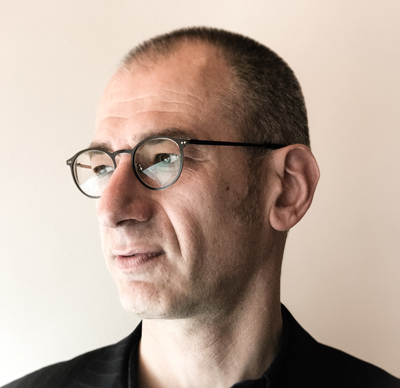With just two months left to the deadline of Close Approximations, our annual international translation contest, there’s still time to polish up your translations (especially of female authors, since we’ve just entered Women in Translation Month) and submit to our contest!
Awarding a total of $3,000 in prizes to six winners this time are Edward Gauvin (Fiction) and Eugene Ostashevsky (Poetry). Entrants have until October 1 to submit their work for a chance of winning up to 1,000USD, in addition to publication in our Winter 2019 issue, joining a roster of translators we have published that includes J.M. Coetzee, Lydia Davis, Michael Hofmann, and Jennifer Croft. We are encouraging early submissions by taking 15% off the entry fee for contest submissions on or before September 1.
To further pique your interest about the contest, here’s more about our wonderful judges and what they think of translation.
***

Edward Gauvin (Fiction) has received prizes, fellowships, and residencies from PEN America, the National Endowment for the Arts, the Fulbright program, Ledig House, the Lannan Foundation, and the French Embassy. His work has won the John Dryden Translation prize and the Science Fiction & Fantasy Translation Award, and been nominated for the French-American Foundation and Oxford Weidenfeld Translation Prizes. Other pieces have appeared in The New York Times, Harper’s, Tin House, and Subtropics. The translator of more than three hundred graphic novels, he is a contributing editor for comics at Words Without Borders and has written on the Francophone fantastic at Weird Fiction Review.
Of how he decides whom to translate, he has said:
A variety of reasons: because it wins me over. Because I want to figure out how it works. Because it’s difficult, and I want to see if I can do it. Because, whether through familiarity or foreignness, it seems a potentially valuable addition to some discourse of fiction I recognize here stateside, a discussion that might be enriched were the story in question to join it and be heard or included. Because there’s someone specific I want to share it with. Because it’s short, and I need the practice. Because I want to be the first. Because, when reading for the first time, I can already hear it, whispering to me in English, ever so seditiously but not to be denied.
If you’ve got fiction translations that you’d love to have read by Gauvin, enter our contest today!
***

Eugene Ostashevsky (Poetry) was born in Leningrad, grew up in New York, and lives in Berlin. As a translator from Russian, he works primarily with OBERIU, the 1920s-1930s underground circle led by Daniil Kharms and Alexander Vvedensky. His collection of Alexander Vvedensky’s poetry, An Invitation for Me to Think (NYRB Poets, 2013), with contributions by Matvei Yankelevich, won the 2014 National Translation Award from the American Literary Translators Association. His as-yet-unpublished project on OBERIU Conversations by Leonid Lipavsky won a translation fellowship from the NEA. Finally, his moonlighting in Italian as a co-translator of Elisa Biagini’s The Guest in The Woods helped her win the 2014 Best Translated Book Award.
Regarding poetry and translation, Ostashevsky has said:
For me poetry—and even translation—is a way of trying to get to the meaning of the word which is obscured almost always by commodification, by the self-interested lies that people tell when they use that word. And what’s interesting is, for example, how do you write a love poem where you actually give access to an emotion rather than manipulation? In a way it is the same question as how can you be in love with a non-imaginary person, where basically it’s not some kind of projection that satisfies your ego but it is another human being? And I don’t mean children, with children it works automatically, but I mean, you know, with another adult. With a closed box. With that thing Descartes saw outside his window that had collars and noses and feet. It’s almost impossible. So in that sense it’s very similar, how do you do this with language so it’s actually not a power play? And I find that the older I get the harder it becomes to me. Because more and more things seem fake. And it’s never clear how to put them together in such a way so that they stop seeming fake.
If you too care about using words to access reality, submit your poetry translation(s) here today!
***
This really is an exceptional opportunity for emerging translators to have their work read by two of the most accomplished and respected individuals in the field of translation. What’s more, the winner and two runners-up in each category will walk away with 1000USD and 250USD in prizes respectively. For full details, visit our contest page here. Our deadline is Oct 1, 2018, so hurry!
Photos of Edward Gauvin and Eugene Ostashevsky by Quitterie de Fomervault-Bernard and Eugene Timerman respectively.

